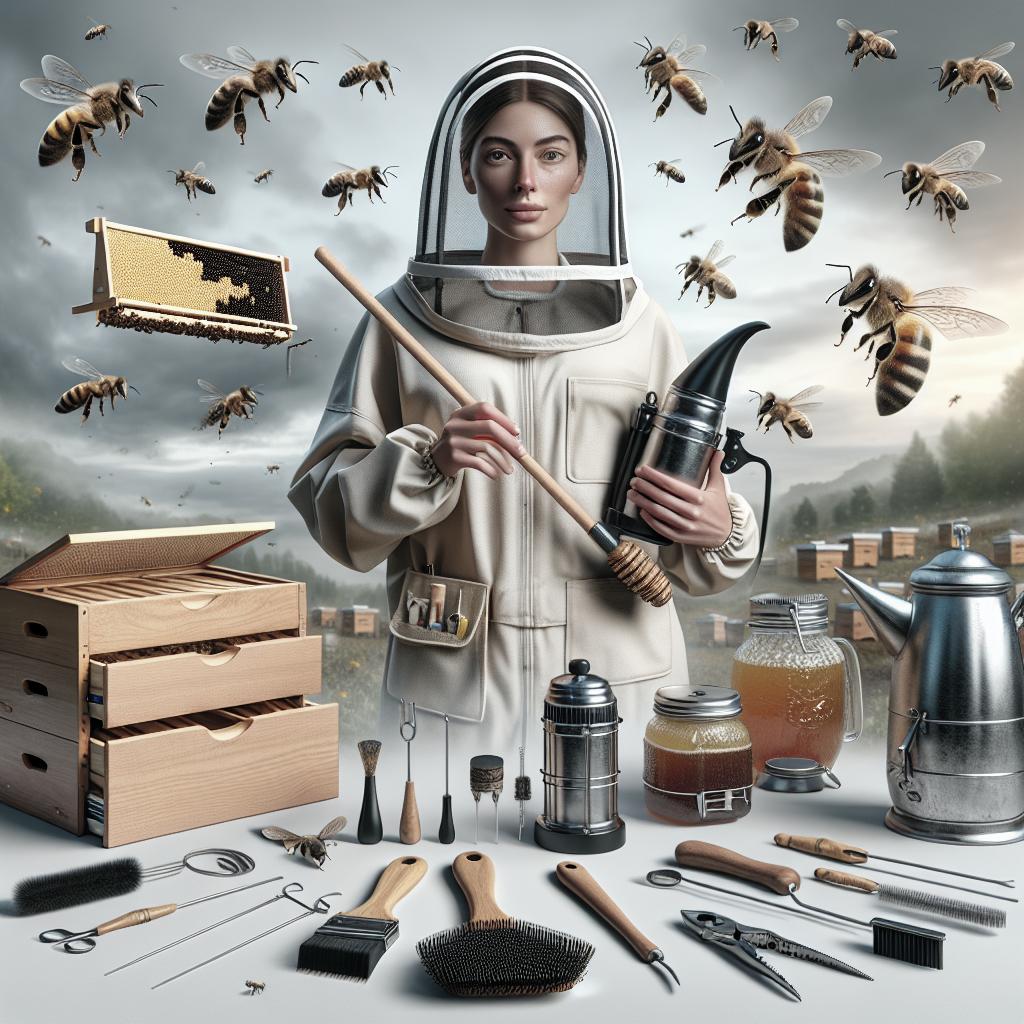Urban Beekeeping Regulations
Urban beekeeping is gaining traction as urban dwellers seek sustainable, eco-friendly hobbies that contribute to local biodiversity. From luscious urban gardens to bustling city rooftops, bees are making a return to urban environments. However, with this rise in popularity comes the need for regulations to ensure the safety and wellbeing of bees and humans alike. This blog post delves into the regulations governing urban beekeeping, with a specific focus on Ontario’s beekeeping laws. We will explore the essential requirements under the Bees Act, the roles of appointed inspectors, and critical considerations before you embark on your beekeeping journey. By understanding these regulations, prospective urban beekeepers can promote safe and sustainable practices while contributing positively to the ecosystem.
Overview
Urban beekeeping is becoming increasingly popular as it offers city residents the chance to engage with nature and support local ecosystems. Bees play an essential role in pollination, which is crucial for food production and biodiversity. However, with the integration of beekeeping into urban areas, it becomes necessary to establish regulations that balance the interests of beekeepers, bees, and the general public.
Regulatory frameworks vary by region, and while each has its unique set of rules, the common goals are to protect bee populations, ensure public safety, and support responsible beekeeping practices. Municipalities and provinces have been stepping up to create guidelines that address these concerns, providing a structured approach to urban beekeeping.
Ontario’s beekeeping laws
In Ontario, beekeeping is regulated by the Bees Act, which aims to protect the health and sustainability of honeybee colonies. The province recognizes the importance of bees in agriculture and the environment, making legislative frameworks necessary to manage beekeeping activities and prevent the spread of diseases.
The Bees Act spells out specifications for the management and care of bee colonies, addressing issues like disease control, hive maintenance, and beekeeping practices. By adhering to these laws, urban beekeepers in Ontario can ensure they meet the health standards required for maintaining healthy bee populations.
Requirements under the Bees Act
One of the primary requirements under the Bees Act is the registration of all beekeepers and their apiaries. This registration ensures that there is a documented record of bee colonies within the province, facilitating disease control and management efforts. Registration must be renewed annually, with details such as the number of hives and specific hive locations.
Additionally, the Bees Act mandates regular inspections of apiaries to monitor the health of bee colonies. Beekeepers are also required to report any signs of diseases or pests to the appropriate authorities promptly. This vigilance helps mitigate the risks of widespread outbreaks that can devastate bee populations.
Appointed inspectors
To effectively enforce the Bees Act and uphold bee health standards, Ontario appoints inspectors responsible for overseeing apiaries and ensuring compliance with the law. These inspectors play a critical role in maintaining the integrity of beekeeping practices across the province.
The inspection framework is designed to equip beekeepers with the necessary support and guidance to manage their colonies effectively. Inspectors offer recommendations, enforce the laws, and provide resources if any issues arise.
Apiary inspectors
Apiary inspectors are pivotal in conducting onsite assessments of bee colonies. They conduct regular inspections to assess colony health, check for diseases, and ensure that beekeepers follow proclaimed beekeeping practices. Their expertise reinforces the importance of health and safety standards in urban beekeeping.
Additionally, apiary inspectors play an educational role, providing beekeepers with insights into disease prevention and best practices for hive management. This knowledge dissemination is crucial in maintaining the healthy and productive operation of apiaries under their watch.
Provincial Apiarist
The Provincial Apiarist oversees the broader beekeeping policies and strategies within Ontario. Working closely with apiary inspectors, the Provincial Apiarist develops protocols for disease management and ensures that legislative standards keep pace with emerging challenges in the beekeeping industry.
Moreover, the Provincial Apiarist often collaborates with researchers, advocating for innovative solutions and supporting initiatives to enhance bee health and productivity. This synergy between regulation and research helps cultivate a supportive environment for urban and rural beekeepers alike.
Before you apply or invest in bees and equipment
For aspiring beekeepers in Ontario, understanding the logistics and regulations is crucial before diving into the hobby. Potential beekeepers should review local by-laws, as municipalities may enforce additional regulations on beekeeping within city limits.
It’s also advisable to connect with local beekeeping associations or experienced beekeepers who can offer guidance and perspectives on building and maintaining successful apiaries. Education and preparation are key steps in responsibly enjoying urban beekeeping.
Help us improve this website.
Engagement from the community is vital in refining and enhancing beekeeping resources. Providing feedback on current guidelines or sharing experiences can contribute to the continuous improvement of beekeeping standards across Ontario.
Participating in surveys or community forums presents an opportunity for you to voice your thoughts and help shape the future of urban beekeeping practices. By having your say, you can strengthen the framework that supports sustainable and thriving urban bee populations.
Final thoughts
| Content Area | Key Points |
|---|---|
| Overview | Understanding urban beekeeping’s importance and regulatory need. |
| Ontario’s beekeeping laws | Details on the Bees Act and its importance in managing bee health. |
| Requirements under the Bees Act | Focus on registration, inspections, and disease management. |
| Appointed inspectors | Roles and responsibilities of apiary inspectors and the Provincial Apiarist. |
| Before investing | Recommendations on researching and understanding local regulations. |
| Help us improve | Importance of community feedback for better beekeeping resources. |


